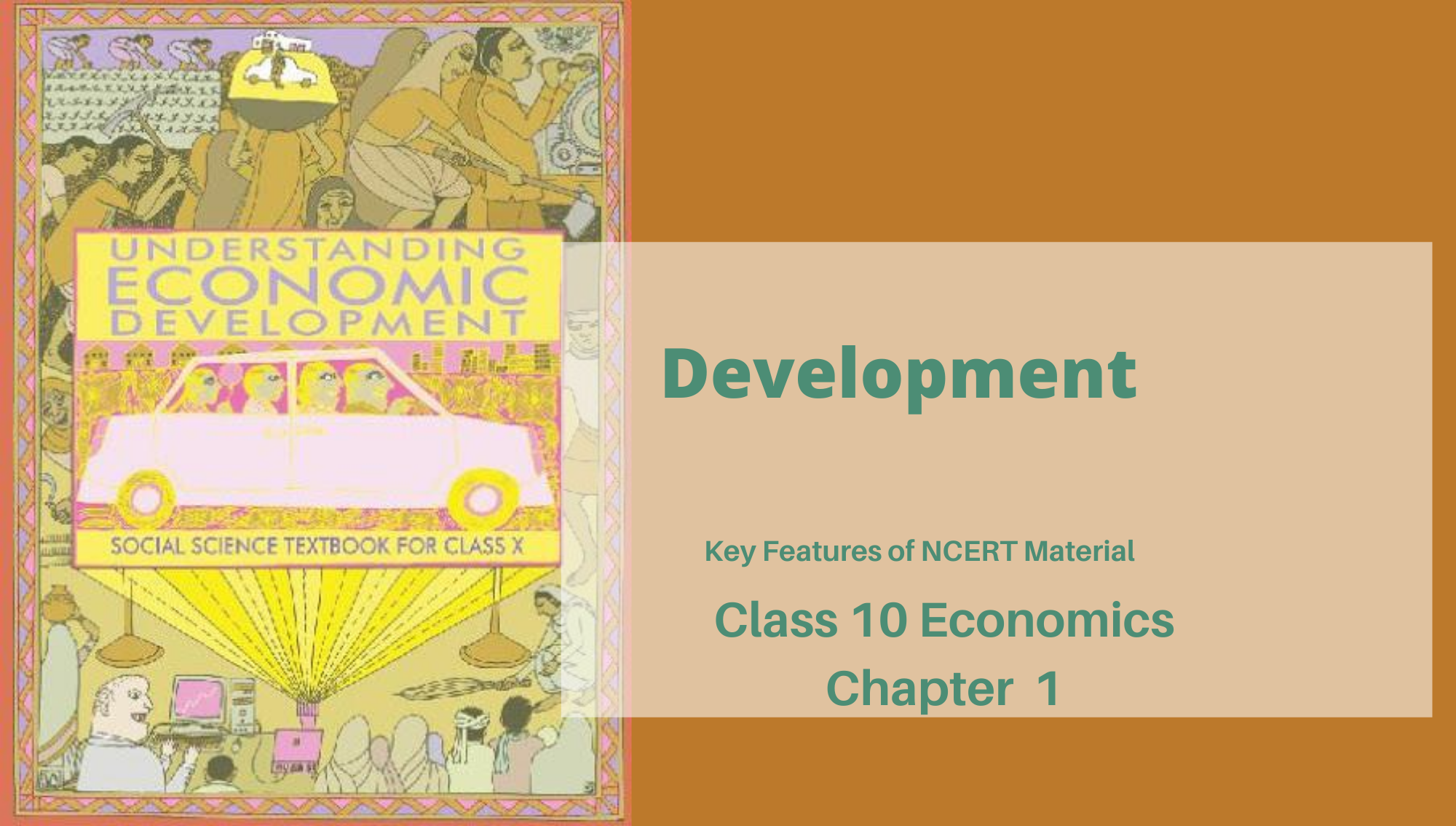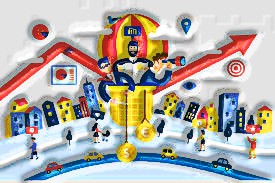Development: Class 10 Economics NCERT Chapter 1

Key Features of NCERT Material for Class 10 Economics Chapter 1 – Development
In the second part Geography this year, you all will learn about Economics. In the first chapter: Development, you will learn about What Development Promises – Different Peoples, Different Goals. Various individuals can have specific developmental goals.

What might be developed for one may not be designed for the other person? It might even be destructive for the other.
Salary and Other Goals
Individuals need more salary. Money, or material things that one can purchase with it, is one factor on which our life depends. Nonetheless, a fantastic nature also depends on non-material things such as equal treatment, opportunity, security, and respect for others. For development, individuals take a gander at a blend of goals. The developmental goals are about better pay as well as about other significant things throughout everyday life.
Fast revision notes
- The possibility of development or progress has always been with us.
- We have aspirations or desires about what we might want to do and how we might want to live.
- In this section, we shall make a start for understanding development.
- It is just through a vote based political process that these hopes and possibilities can be accomplished, in actuality.
WHAT DEVELOPMENT PROMISES – DIFFERENT PEOPLE, DIFFERENT GOALS:
- Individuals seek the most important things for them, i.e., that which can satisfy their aspirations or desires.
- In fact, on occasion, two persons or groups of persons may seek things that are clashing.
- So two things are apparent:
(I) Different persons can have diverse developmental goals.
(ii) What might be produced for one may not be created for the other? It might even be destructive for the other.
Pay AND OTHER GOALS:

- Individuals desire everyday work, better wages, and OK cost for their crops or products they produce. In the end, they need more salary.
- Individuals also seek things like equal treatment, opportunity, security, and respect for others.
- In some cases, these might be a higher priority than more pay or more consumption because material goods are not all that you have to live.
- Money, or material things that one can purchase with it, is one factor on which our life depends on non-material things referenced previously.
- Numerous items are not easily measured; however, they mean a ton to our lives. These are regularly overlooked.
- Nonetheless, it is inappropriate to reason that what can’t be measured is not significant.
- Similarly, for development, individuals take a gander at a blend of goals.
- The developmental goals that individuals have are about a better salary and better pay yet also about other significant things throughout everyday life.
NATIONAL DEVELOPMENT:

- It is critical to remember that various persons could have distinctive and clashing notions of a nation’s development.
- National development means pondering a reasonable and just way for all, regardless of whether there is a superior method of getting things done.
HOW TO COMPARE DIFFERENT COUNTRIES OR STATES?
- Usually, we take at least one significant characteristic of persons and think about them based on them.
- For contrasting countries, their pay is considered to be one of the most significant attributes.
- Countries with higher income are more evolved than others with less pay.
- The payment of the nation is the pay of the considerable number of residents of the country. This gives us all our pay.
- For comparison between countries, full pay is not such a useful measure.
- Henceforth, we analyze the average income, which is the nation isolated by its all-out populace. The average salary is also called per capita pay.
- In World Development Report brought out by the World Bank, this
- Countries with a per capita salary of USD 12736 for each year or more in 2013, are called rich countries and those with per capita pay of USD 1570 or less are called low-pay countries.
- India comes in the classification of low center salary countries because its per capita pay in 2013 was just US$1570 per income.
Pay AND OTHER CRITERIA:
- Let us analyze the per capita salary of Maharashtra, Kerala, and Bihar.
- Maharashtra has the highest per capita pay, and Bihar is at the base.
- So, if per capita pay were to be used as the measure of development, Maharashtra will be considered the most evolved state of the three.
PUBLIC FACILITIES:
- Money in your pocket can’t be accepting all the goods and services that you may need to live well.
- Pay without anyone else is not a useful marker of material goods and services that citizens can use.
- Regularly, your money can’t accept the contamination-free condition or ensure that you get unadulterated medicines unless you can stand to shift to a network that, as of now, has every one of these things.
- Money may also not have the option to shield you from infectious disease unless your locale takes preventive steps.
HUMAN DEVELOPMENT – Development of a person in such a manner that he can be ready to acquire and satisfy his materialistic desire.
SUSTAINABILITY OF DEVELOPMENTS:
- Since the second 50% of the twentieth century, various scientists have been cautioning that the present kind, and levels of development, are not sustainable.
- Resources are replenished commonly as on account of crops and plants.
- On the history of groundwater, on the off chance that we use more than what is being filled by a downpour, at that point, we would overuse these resources.
- The consequences of ecological debasement don’t respect national or state boundaries; this issue is no more extended or country-specific.
- Sustainability of developments is another subject matter in which scientists, economists, philosophers, and other social scientists are cooperating.

